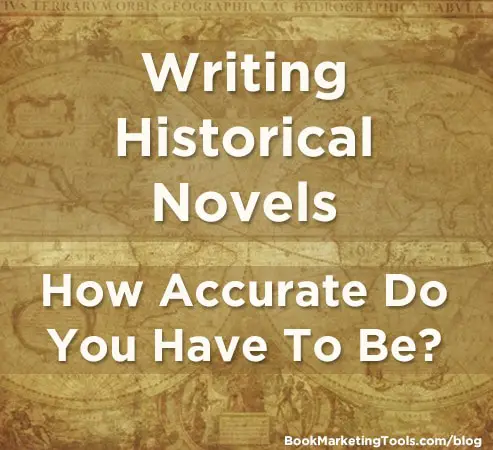Destinni paced the floor of her ancestral manor. Did Captain Rick FitzHazard, the only man she had ever loved, swing from the gallows like the pendulum on her father’s clock? Or — she pressed her hand to her lips — had he escaped Cromwell’s hangman?
Sadly, we’ll never know. But we can be clear about the shortcomings of this English Civil War epic. For one thing, nobody in 1640s England was called Destinni.
For another, the clock can’t have a pendulum: that kind of timepiece came in after the Civil War.
How Important Are These Mistakes?
The first kind of error, insensitivity to historical atmosphere, is pretty much the result of the self-publishing revolution. Editors of the old school could put stuff like Vikings, Napoleon, and the Romans into historical order without drawing breath, and they expected their authors to have the same feeling for their period.
Today, however, a writer’s outright ignorance of the past may not trouble readers. Some won’t wince when the footman announces Lady Cherish de Randall, and not even when the French win the Battle of Trafalgar.
So how come you don’t merit the same indulgence when you make the second sort of mistake, when you mess up the actual facts? You may live so intensively in the Middle Ages that you think Britney Spears is standing for US President in 2016, but just that once you pin a duke’s cockade on the wrong side of his helmet and you end up with a withering notice on Amazon. Meanwhile Destinni has 250 five-star reviews and is #1 in Free Historical Romance. Life can be so unfair.
Errors Happen
You’ve read the advice out there — how to do research, and (just as important) how not to swamp your historical fiction with it. But no matter how deeply you delve into your subject, sooner or later you’ll assert something that simply wasn’t so.
And even if it were possible to be spot on, every single time, there’s a subtler sense in which you can never be quite accurate. True-to-life historical dialogue will lose you readers quicker than fleas deserting a plague rat. And, since those readers will be less than grateful for your comprehensive treatment of events — the ones that academic historians fight duels over — simplifying the past is the only practical option.
How Do You Handle the Past, Then?
The ideal historical novel remains an illusion. However much it might convince, however intensely it entertains, it’s a rendering of the past, not antiquity itself. And if it’s a real novel, a character-driven story, even the most critical reader should be sufficiently entranced to forgive your occasional mild slip.
Secondly, your take on the past may allow for, even be enhanced by, playing fast and loose with history. Writing a brand of noir set in Mozart’s time, improbable in itself, I permit my characters to say and do things which are anachronistic. (My worst offence is to have a gang in 1774 do a SWAT analysis of a Venetian moneylender’s operation.) I’m satisfied that this approach suits the stories, and all I can hope is that character, narrative, and atmosphere carry the day.
Going Forward
If you’re more extreme than this, and your historical writing is really a kind of fantasy, paranormal or not, you’ll keep on doing it anyway, and your readers will know by now not to hold you to account, assuming they care. If, like most historical novelists, your fidelity to the past is stronger than your wedding vows, you’ll torture yourself when you’re caught out, and that won’t be often.
Do be aware, though, there are categories of historical novel where inaccuracy will be severely penalized by readers. Stories which turn on precise technical points — such as military or maritime accounts — or mysteries over which speculation has long been intense, like the fate of Grand Duchess Anastasia, or the identity of Jack the Ripper, need to be grounded in the known or the knowable.
But over and above that, it’s fair to say that the notion of accuracy needn’t maintain an iron grip on your historical writing.
PS: (For those of you who have to know: Rick FitzHazard overpowered his jailer and escaped on faithful Diablo.)
David Neilson is the author of The Prussian Dispatch. For more information about the series, visit http://sophierathenau.weebly.com

